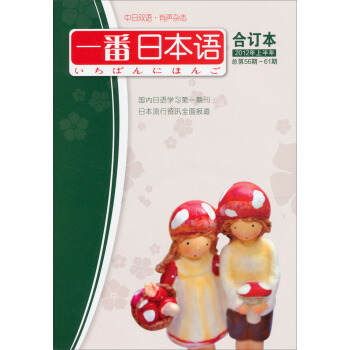![牛津英文经典:少年维特的烦恼(英文版) [The Sorrows of Young Werther]](https://pic.windowsfront.com/11886755/56dfebd0N4225447e.jpg)

具体描述
编辑推荐
牛津大学出版百年旗舰产品,英文版本原汁原味呈现,资深编辑专为阅读进阶定制,文学评论名家妙趣横生解读。内容简介
维特在一次舞会上与夏绿蒂相逢、产生爱慕之情,但她早已订婚。维特内心无限痛苦,绝望之余,终于自杀。小说表现了当时的知识分子对封建道德、等级观念的反抗和个性解放的要求。作者简介
歌德(1749—1832),德国著名思想家、作家、博物学家。他十分博学,涉猎广泛,在诸多领域都取得了卓越的成就。他著名的作品是书信体小说《少年维特的烦恼》、诗体哲理悲剧《浮士德》。精彩书评
它(《少年维特的烦恼》)是欧洲文学的杰作之一。——拿破仑·波拿巴
这篇描写炽热而不幸的爱情的故事(《少年维特的烦恼》),其重要意义在于,它表现的不仅是一个人孤立的感情和痛苦,而是整个时代的感情、憧憬和痛苦。
——勃兰兑斯
目录
IntroductionNote on the Translation
Select Bibliography
A Chronology of Johann Wolfgang von Goethe
THE SORROWS OF YOUNG WERTHER
Explanatory Notes
精彩书摘
BOOK ONE4 May 1771
How glad I am to be away! My dear friend, what a thing the human heart is! I leave you, whom I love so much, from whom I was inseparable, and I am glad! You will forgive me, I know. Were not all my other dealings with people expressly designed by Fate to alarm and distress a heart like mine: Poor Leonore!* And yet I was innocent. Could I help it that whilst her charming and heedless sister was amusing me, a real passion was forming in poor Leonore’s heart? And yet—am I wholly innocent? Did I not foster her feelings? Was I not myself delighted by the wholly truthful expressions of her nature, which, though not in the least laughable, so often made us laugh, and did I not—? But what sense is there in berating ourselves? My dear friend, I promise you I will mend my ways and Cease forever chewing over the small evils that Fate put sin our path. I will enjoy the present and be done with the past. Dear friend, you are quite right, there would be less pain among people if they would desist—God knows what makes them do it—from so busily employing their imaginations in remembering past ills rather than in enduring an indifferent present.
I‘d be grateful if you would tell my mother that I shall do my very best in her affair and that I‘ll write to her about it just as soon as I can. I’ve spoken to my aunt* and found her not at all the wicked woman our family makes her out to be. She is lively, spirited, and very good-hearted. I explained my mother‘s grievances over the portion of the inheritance being withheld; she told me her grounds ,the reasons, and the conditions on which she would be prepared to release everything, and more than we were asking for.—In brief, I don‘t want to write about it now: tell my mother all will be well. And in this small matter, my friend, I have realized once again that misunderstandings and lethargy can cause more going wrong in the world than cunning and wickedness do. At least, those two are certainly less common.
Beyond that, I very much like being here, in this paradisal part of the country solitude is a precious balm for my heart.,and that heart,so often struck cold, is warmed by the youthful season in all abundance. Ever tree, every hedge is a bouquet of blossom. Oh to be a maybug and flit where you like in that sea of scents and get all your nourishment there!
The town itself is disagreeable but all around the beauty of nature is beyond expression. This induced the late Count M.* to lay out his garden on one of the numerous hills that in lovely variations cross their courses here, forming the sweetest valleys. The garden is simple and you feel the moment you enter that it was designed not by a scienti?c gardener but by a feeling heart desiring to enjoy itself. In the dilapidated little Summer house that was once his favourite place and is now mine, I have wept more than once in memory of the dead man. I’ll soon be the lord of the garden. After only these few days the gardener is well disposed towards me—and he won’t be the laser by it.
10 May
A wonderful cheerfulness has taken complete possession of my soul , like the beautiful spring mornings that I am enjoying so wholeheartedly. I am alone and am glad of my life in this locality made for souls like mine. My dear friend, I am so happy and hate sunk so deep into the feeling of calm existence that my art suffers under it. I couldn’t do a drawing now, not a line of one, and yet was never a greater artist than I am in these moments. When the moisture rises in a mist in the sweet valley all around me and the high sun rests on the surface of the forest’s impenetrable darkness and only occasional beams ?nd their way into the inner sanctum and l lie in the tall grass by the tumbling stream and, thus close to the earth, become aware of the myriad varieties of grasses, and when I feel the seething of the world of small things among the stalks, feel against my heart the countless unfathomable shapes and form: of the tiny creatures that ?it and crawl, and I feel the presence of the Almighty who created us in his image, the wafting breath of the Love that encompasses all, that upholds and sustains us in an eternal joy, oh my friend, at the dawning then before my eyes when the world and the heavens reside in my soul completely like the bodily shape of a beloved woman, then how I yearn and often have said to myself. Oh could you give that some answering expression, only breathe into the page what is so fully and warmly alive in you till it becomes the mirror of your soul just as your soul is the mirror of the unending deity!—Oh my friend!—But it will be the downfall of me, I lie defeated by the force of the splendour of these phenomena.
12 May
I can’t tell whether deceiving spirits hover over this locality or whether it is the warm and heavenly imagination of my heart that makes everything around me so paradisal. Just outside the town there is a well*—to which I am in thrall like Melusina* and her sisters.—You descend a small incline and ?nd yourself at a cupola below which perhaps twenty steps go down to where an utterly clear water bubbles up out of marble. The low wall making an enclosure at the top, the tall overshadowing trees all round, the coolness of the place, it draws me and gives me the shivers too. No day goes by without my sitting there an hour. The girls come from the twon to fetch water, the most innocent and the most necessary of tasks that formerly the very daughters of kings used to perform. As I sit there, the patriarchal idea comes to life very vividly in me, how they, the forefathers, would meet and become acquainted and courtships would begin* and how kind the spirits are that hover around wells and springs. Oh, anyone who after a long summer Walk has ever refreshed himself at the coolness of a well must feel as I do.
13 May
You ask should you send me my books?—For heaven’s sake, my dear friend, do no such thing! I have no wish to be directed, encouraged, ?red up, any more. My heart is in quite enough ferment of itself. I need lulling, and I have had that in abundance from my Homer.* How often he has helped me calm the upheaval of my blood, for nothing you have ever encountered is quite so uneven and unsteady as this heart of mine. But I don‘t need to tell you that, since you, my dear friend, have so often had the burden of watching me shift from sorrow to extravagance and from sweet melancholy to harmful passion. But I tend my heart now like a sick child, grant its every wish. Keep that to yourself—there are people who would begrudge it me.
15 May
The common people hereabouts know me now and like me, especially the children. A sad thing struck me. At ?rst when I approached them and asked them in a friendly way about this or that, some thought I had a mind to make fun of them and put me off very coarsely. I did not let that grieve me but I felt very keenly what I have often remarked: people of a certain social standing will always keep themselves coldly at a distance from the lower orders as though they feared any rapprochement might diminish them; and then there are ?ighty characters and evil jokers who make a show of abasing themselves only so that their superiority may be all the more painfully apparent to the poor.
I know very well that we are not equal, nor can we be; but in my view anyone who feels it necessary to keep away from the so-called common hard to make them respect him is as much at fault as a coward who keeps himself hidden from his enemy for fear of defeat.
The other day I came to the well and found a young maidservant who had put down her pitcher on the bottom step and was looking round for one of her friends to come and help her lift it onto her head. I went down and addressed her.—Shall I help you, young lady?’—She blushed and blushed—‘Oh no, sir,’ she said—‘Come now.’—She adjusted the coil of cloth on her head and I helped her. She thanked me and climbed the steps.
……
前言/序言
Die Leiden des jungen Werthers (The sorrow of Young Werther), published in the autumn of 1774,made Goethe’s name; but for three of four years before then he had already be writing with great self-confidence and distinction. Briefly as a young student in Leipzig he adopted the poetic tone and manners of his urbane rococo contemporaries; but moving to Strasbourg in 1770 and meeting the critic and philosopher Herder, he was directed by him into ballads, folk-songs, the deeply congenial world of so-called primitive song. Characteristically, that literary influence conjoined at once with a passionate love—for Friederike Brion—and in poems addressed to her—‘Mailed’, ’Heidenr?slein’, ’Willkommen und Abschied’—he broke through into his own poetic voice. With his early work on Faust (the so-called Urfaust), and the ‘Shakespearian’ chronicle-play G?tz von Berlichingen and a douzen more vital and characteristic poems (‘Der Wandrer’, ’Wandrers Sturmlied’, ‘Mahometsgesang’, ‘Ganymed’. . . ), Goethe’s achievement by his mid-twenties was prodigious in its originality, force, and variety. G?tz, written and published in 1773, was first performed in April 1774 in Berlin, and by the end of that year, after Werther’s appearance in September, Goethe had become, as Byron said half a century later, ‘the first literary character in Europe’.Goethe was the chief maker of the movement in German literature known as Sturm und Drang (literally, ‘storm and stress’). There were other gifted and important writers in it too, J.M.R.Lenz, for example, and, at the end of the period, Friedrich Schiller; but Goethe was pre-eminent and, unlike others, moved on, sloughing off one skin for the next(the image is his). Sturm und Drang in its language, gestures, forms, was a literature of revolt. Enlisting Shakespeare, the writers sought to uncover a culture of their own from ender the dead tradition of the French; to be more natural, more local, achieve an identity. There was a social and political edge to this, most obvious in Goethe’s Urfaust (not published till 1887), Schiller’s Die R?uber (The Robbers), and Lenz’s Der Hofmeister (The Tutor),but the successful revolt was all literary, benifiting later writers, among them the politically far more definite Georg Büchner and Bertolt Brecht.
Sturm und Drang is usually studied as a distinct period of German literature, separate from Germany‘s own Romanticism (Novalis, Tieck, Friedrich Schlegel, Brentano) and those of Britain and France; but really, from a larger perspective, it belongs in the context or a European Romanticism beginning in the 1760s. Viewed like that, Goethe was and, despite his later Classicism, remained, a Romantic writer and Werther is a Romantic text .In that novel, in his early Faust, and in dozens of lyric poems be on already in the 1770s asserting, as Keats would nearly fifty years later, ‘the holiness of the heart‘s affections' in ‘the true voice of feeling‘. The relative naturalism of his language anticipates Wordsworth's championing, in the Preface to the Lyrical Ballads(1798/1800), of the use in poetry of ‘the real language of men’. And most strikingly, what Werther suffers and describes in his letter of 3 November, that loss of spirit, is the anxiety and horror in the heart of all Romanticism that Coleridge called, in his ode of that name (1802), ‘dejection’—when the genial spirits fail, when the ‘shaping spirit of Imagination’ cannot sustain any vital connection between the subject and the world.
The Making of Werther
Goethe was—he said so himself—a ‘confessional’ writer; that is, what he wrote came in large measure out of the life he lived. How directly and obviously depended of course on the project in hand—poems, ?ctions, plays have their own determinants—and, somewhat, on the phase of life in which he wrote. Werther (1774) and Elective Affinities(1809) are both novels. Of the latter he said, ‘I lived every word of [it]’; but also, his chronicler Eckermann reports :‘He said there was nothing in his Elective Affinities which had not been really lived, but nothing was there in the form in which it had been lived.’ But when Werther came out the people close to it and soon everybody else quite understandably believed that much or even must of it had really been lived and in that form.
In part it is a matter of genre. Lyric poems may be very auto-biographical and many of Goethe’s are, in all the phases of his life; but novels and stories are more likely to induce readers to wonder are the characters and situations ‘true’ because, if written at all in the realist mode, they need more of the real world’s details for their existence and effect than poems do. For Werther, his ?rst novel, Goethe used the stuff of his own and other people’s lives with a quite extraordinary immediacy and ruthlessness.
There are three main contributions of biographical and auto-biographical fact to the making of Wether: the triangle: Goethe—Christinn Kestner Charlotte Buff (who became Kestner’s wife); the life and suicide of Karl Wilhelm Jerusalem; and the triangle: Goethe-Peter Anton Brentano-Maximiliane von La Roche (who became Brentano‘s wife).
Goethe moved to Wetzlar in May 1772 to get some practical experience of law, the profession he had studied for and in which he took no interest. There he got to know Christian Kestner. A secretary at the courts, and, at a dance on 9 June, the young woman Kestner intended to marry, Charlotte Buff. In March of the previous year her mother had died, leaving her, then aged eighteen, the second-eldest of twelve children, to look after the family and manage the household. Goethe, Kestner, and Charlotte became a close trio; and to her family also Goethe was fondly attached. In a fashion already characteristic, he broke out of the entanglement and left Wetzlar without warning on 11 September, and on foot and by boat made his way down the Lahn to Koblenz, where he met the sixteen-year-old Maximiliane Von La Roche. He was back home in Frankfurt by the nineteenth,
In book 13 of his autobiography Dichtung und Wahrheit (Poetry and Truth) Goethe had this to say about quitting Charlotte Buff and meeting Maximiliane Von La Roche: ‘It is a very pleasant feeling when a new passion starts in us before the old has quite lapsed—as at sunset when we see the moon rising opposite and enjoy the double radiance of both heavenly lights.’ The ?ctional Lotte, mostly Charlotte Buff, has Maximiliane‘s black eyes.
Goethe and Karl Wilhelm Jerusalem had been students together for two years (1765-7) in Leipzig and renewed their aquaintanceship, never very cordial, in Wetzlar. Jerusalem, an amateur of the arts and philosophy, held a secretarial post; got on badly with his superior, an envoy at the Court; and was in love with a married woman by the name of Elisabeth Herd who didn't love him and complained about him to her husband. Jerusalem shot himself on the night of 29-30 October 1772. Goethe, back in Wetzlar in early November, appalled by this event, found out all he could about it and his chief source was Kestner who wrote, perhaps at Goethe’s bidding, an extraordinarily full account, much of which Goethe utilized for Werther. During the rest of November 1772 Goethe busied himself collecting details about Jerusalem rather as the Editor in his novel would about the ?ctional Werther. He put many of these biographical facts as well as many details of his own relationship with Kestner and Charlotte directly into the novel, as though he were indeed the editor and/or narrator of his own terminated life. Years later in Dichtung und Wahrheit he wrote another version. Werther, near the beginning of his career, is a particularly drastic example of the compulsive working and reworking of the stuff of life, his own and other people‘s, that would be Goethe's way of being in the world for the rest of his days.
Kestner and Charlotte were married on 4 April 1773, but neither that nor Jerusalem’s suicide was the immediate catalyst for the writing of Werther. Goethe saw the La Roches, mother and daughter, intelligent, artistically gifted and lively women, in Frankfurt that August. When he saw Maximiliane next, in January 1774, again in Frankfurt. she was married to the businessman Peter Anton Brentano, more than twenty years her senior and a widower with ?ve children whom she had to look after. For those two weeks in January Goethe Continued his relationship with her. They were like brother and sister, he recalls in Dichtung und Wahrheit, far closer in age than she and her husband, while he was, Goethe says, ‘The only one in her entire circle in whom she could hear an echo of that music of the intellect and the spirit to which in girlhood she had grown accustomed'. But Brenuno was no Kestner and did not in the least want Goethe in his family. Maximiliane bore Brentano twelve children (among them Bettina and Clemens, two Romantic writers) and died in 1973 aged thirty-seven.
用户评价
不得不说,这本书的魅力在于其强大的代入感和那种近乎病态的美学。它将“痛苦”提升到了一种艺术的高度,让读者在为角色的不幸感到惋惜的同时,又被这种极致的、纯粹的体验所吸引。这不是一本读完后会让人感到轻松愉快的书,它会像一块烙铁一样,在读者的情感记忆中留下印记。它教会我,有些深刻的感受,注定无法被妥善安放于日常生活的琐碎之中。作者笔下的世界是如此的鲜活、如此的炽热,充满了理想主义的光芒,但也正是这份光芒过于耀眼,才使得任何阴影的投射都显得那样巨大和不可承受。每一次重读,都会有新的感悟,关于选择、关于遗憾、关于那些因为过于深爱而导致的毁灭。它是一部关于“不合时宜”的赞歌,颂扬了那些不愿被时代潮流轻易同化、坚持活在自己情感真实中的灵魂。
评分这部作品的文字流动性简直让人惊叹,仿佛有一股无形的力量牵引着读者的心绪,随着主人公的情感波澜一同起伏。作者在描摹人物内心世界的细腻程度上,展现了高超的文学技巧,每一个细微的思绪转变、每一次隐秘的挣扎,都被捕捉得入木三分。它不是那种用宏大叙事去震撼读者的作品,而是通过深入骨髓的个体体验,触及了人类情感最本质的部分。阅读的过程更像是一场心灵的洗礼,让人不禁反思自己生命中那些未曾说出口的悸动和遗憾。那种在青春与成熟的边缘徘徊,对世界充满激情又倍感无力的状态,被刻画得如此真实,以至于即使故事发生在遥远的时代背景下,其带来的情感共鸣依然是跨越时空的。我常常在某个转折处停下来,默默回味那些诗意又带着忧郁的句子,它们如同散落在文字间的珍珠,需要耐心去拾取,方能体会其完整的价值。这种阅读体验,远超出了单纯消遣的范畴,它更像是一次与伟大灵魂的私密对话,让人在合上书本后,仍久久沉浸其中,久久不愿抽离。
评分说实话,初读时我并未完全预料到它能带给我如此强烈的冲击。它的叙事节奏,不像现代小说那样直截了当,反而充满了那个时代特有的、迂回而华丽的笔触。但这并非累赘,恰恰是这种缓慢的渗透,营造出一种无可挽回的宿命感。书中的环境描写,总是与主人公的心境紧密相连,自然景观不再是单纯的背景,而是成为了情绪的放大器。比如,当他沉浸在幸福的幻觉中时,周围的世界似乎也镀上了一层柔和的光晕;而当绝望降临时,即使是明媚的阳光,也显得尖刻刺眼。这种内外景的交织,构建了一个极为立体和感性的世界观。我特别欣赏作者处理“未竟之事”的方式,很多事情都被留在了朦胧的意境之中,没有给出明确的答案,这份模糊性反而赋予了作品永恒的生命力,让每一个读者都能将自己的“未竟”投射其中,形成独特的解读体验。它挑战了我们对“完美结局”的期待,反而颂扬了情感的纯粹性。
评分这本书带来的震撼,更多是一种对“真诚”与“激情”的极致展现所产生的敬畏。它探讨的主题,即便在今天看来,依然尖锐得让人心悸:当个体最深层的、不被世俗规则所驯服的情感与僵化的社会规范发生冲突时,会迸发出怎样的火花,又将导向何种悲剧?书中角色的挣扎,与其说是针对某个具体事件的反应,不如说是对生命意义本身的深刻追问。每读到主人公那近乎偏执的投入,我都忍不住思考,在我们的日常生活中,我们究竟为那些真正触动灵魂的事物,付出了多少代价?这种对内在世界的毫不保留的剖析,使得文本充满了爆发力,它拒绝平庸,拒绝折衷。它是一面镜子,映照出我们内心深处那些最不愿承认的脆弱与渴望,促使我们正视人性的复杂性,而不是简单地用“对”与“错”来标签化一切体验。
评分从文学史的角度来看,这部作品无疑具有里程碑式的意义,它成功地捕捉并定义了一种特定的时代精神,一种对理性主义的反思和对情感的回归。然而,抛开这些高深的理论标签,它最吸引我的,仍然是其作为“故事”的力量。作者构建了一出令人心碎的爱情悲剧,但其核心远不止于“三角恋”的简单框架。它是一部关于界限和跨越的故事——跨越友谊的界限、跨越理智的界限,最终跨越了生死的界限。阅读过程中,我发现自己对书中其他配角的命运也产生了强烈的共情,他们并非简单的陪衬,而是构成主人公悲剧命运不可或缺的砝码。这种群像的塑造,让悲剧显得更加沉重和无可逃脱,仿佛所有人都被卷入了一个巨大的、由命运织就的网中,无论如何挣扎,结局早已在最初的相遇中便已注定。
评分买了几本牛津英文经典的书,准备好好看看~~
评分京东的书,总是让人信赖的。
评分亚当•斯密是十八世纪中期英国最负盛名的政治经济学家和伦理学家,他一生研究的学问涉及天文学、纯文学、修辞学、哲学、伦理学、政治学、法学和政治经济学等。《国富论》奠定了 他作为英国古典政治经济学奠基人的崇高地位和名望。
评分非常不错,赞一个!
评分译林出版社的原版书,还没细看。。。。。。。
评分618搞活动就是便宜,性价比太高了!
评分下订单到收到贷5个小时,太快了!内容还没看!
评分东西还可以,快递送货不错,专门给个好评。
评分#一时爽,买来看不懂
相关图书
本站所有内容均为互联网搜索引擎提供的公开搜索信息,本站不存储任何数据与内容,任何内容与数据均与本站无关,如有需要请联系相关搜索引擎包括但不限于百度,google,bing,sogou 等
© 2026 book.coffeedeals.club All Rights Reserved. 静流书站 版权所有




![世界名著典藏系列:哈克贝利·费恩历险记(中英对照全译本) [The Adventures of Huckleberry Finn] pdf epub mobi 电子书 下载](https://pic.windowsfront.com/10096008/rBEDik_RuAYIAAAAAAD2wWwJLfEAAAfigJyS68AAPbZ134.jpg)
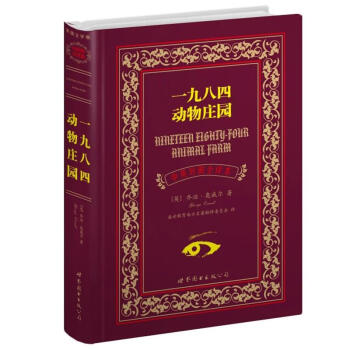
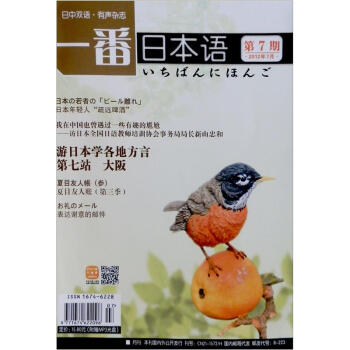
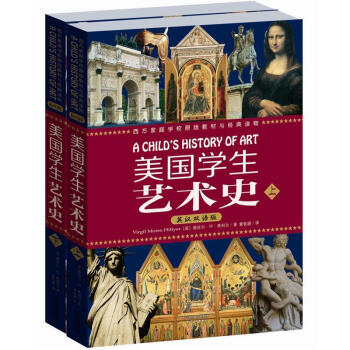
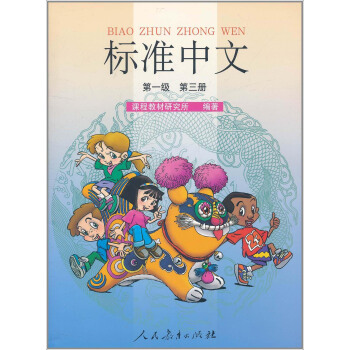




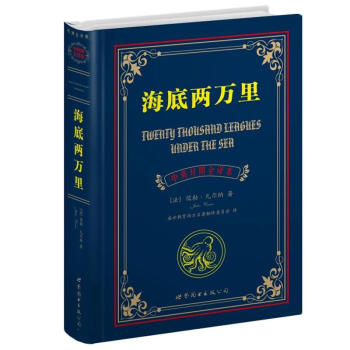

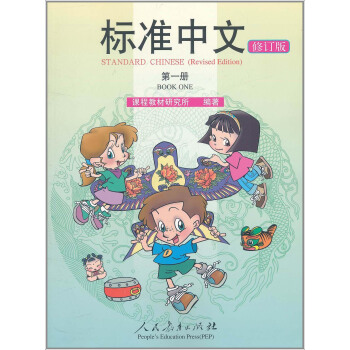
![牛津英文经典:社会契约论(英文版) [Discourse on Political Economy and the Social Contract] pdf epub mobi 电子书 下载](https://pic.windowsfront.com/11886763/56dfebd0N448142b9.jpg)

